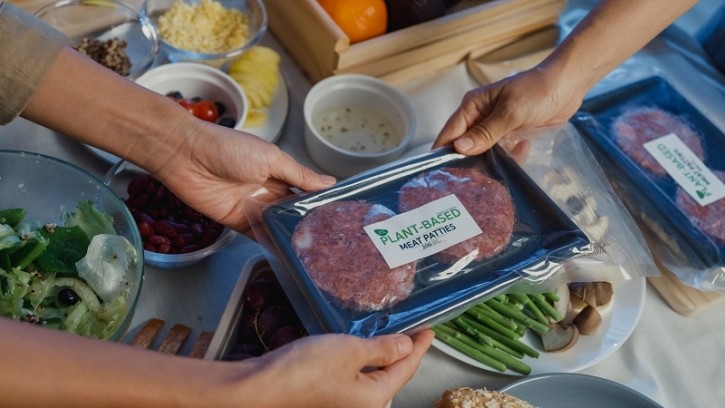Consumers remain cautious on alt meat, as at-home food spending continues to rise, Purdue University finds

“With food-at-home spending continuing to drive up total food spending at the same time that consumers predict annual food inflation will drop below 4%, we could continue to describe consumers as cautiously optimistic. However, it seems that the government measure of food inflation is now dropping faster than consumer expectations for inflation, which signals that consumers are potentially becoming more accustomed to higher inflation,” Sam Polzin, a food and agriculture survey scientist for the center and co-author of the report, shared in a press release.
Meat alternatives fail to register with consumers on all but one front
In a survey of more than 1,200 US adults, Purdue University found that consumers largely preferred beef from cattle over alternatives for taste, appearance, freshness, price, convenience, and several other factors.
A majority of consumers (71%) said beef from cattle is much or somewhat better in taste, while only 17% said that beef and beef alternatives tasted about the same, and 12% said the alternatives were better. Similarly, 57% of consumers said beef is much or somewhat better in terms of freshness, while 27% said it was about the same for the two, and 16% said meat alternatives were much or somewhat fresher.
While animal-based meats beat meat alternatives in almost all the descriptors Purdue University tracked, 42% of consumers said beef alternatives were somewhat or much better from an animal welfare perspective, with 38% of people saying beef is much or somewhat better on animal welfare and 19% said both were similar.
“The biggest takeaway from our alternative meat questions is that consumers still overwhelmingly prefer beef from cattle across a wide range of product attributes. This result reinforces the fact that plant-based meat remains a niche product," Joseph Balagtas, the CFDAS director and a professor of agricultural economics, shared in a press release.
He added for cell-cultured products "our study highlights that marketing – and in particular the naming of a new product or technology – can influence consumer perceptions of the product."
At-home food spending is up, as consumers shift to more in-store shopping
Purdue University also reported on how much consumers are spending on food on average, with consumers reporting on their food expenditure in the last 30 days. Based on the July results, consumers spent $126 weekly on groceries and $68 on restaurant and carry-out, and food-at-home spending was up 5%, and food-away-from-home spending was down 2%.
And while talk of a recession and high inflation predicted that consumers would head into more dollar and value stores, Purdue University found most consumers (73%) continue to shop at grocery stores. However, consumers have shifted away from online shopping, with only 15% of consumers using the channel, down from 17% this time last year.
![[Watch] C’est La Ve’s vegan charcuterie boards focus on convenience and sustainability](/var/wrbm_gb_food_pharma/storage/images/_aliases/wrbm_medium/publications/food-beverage-nutrition/foodnavigator-usa.com/news/manufacturers/watch-c-est-la-ve-s-vegan-charcuterie-boards-focus-on-convenience-and-sustainability/16748603-1-eng-GB/Watch-C-est-La-Ve-s-vegan-charcuterie-boards-focus-on-convenience-and-sustainability.jpg)

















